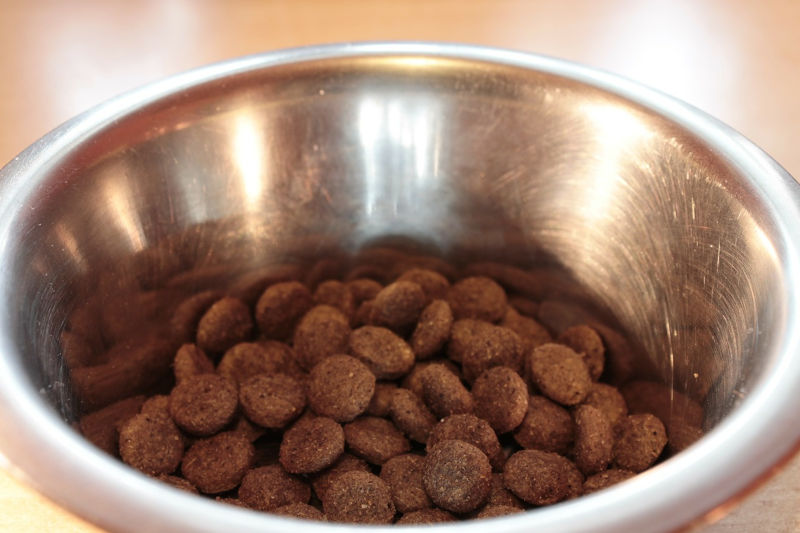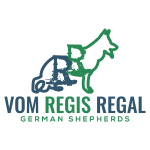What’s the Best Food for a German Shepherd?
If you are like most dog owners, you see the love and happiness your canine companion brings into your life as a cherished blessing. Those who give our hearts to dogs want our time with them to last for as long as possible, which is why we choose the food they eat very carefully. Human beings live longer and healthier lives when they eat a balanced diet of nutritious foods and avoid added sugar, fat and salt, and the same is true for dogs.
This article will explain how choosing a quality dog food could add years to your German Shepherd’s life and helps cut your vet’s bills at the same time.


Your German Shepherd’s Nutritional Needs
Many people assume dogs are carnivores because they are descended from wolves and have large canine teeth, but they are actually omnivores just like us.
In order to live a long and healthy life, your German Shepherd needs food that provides a good balance of protein, carbohydrates, fats, vitamins and minerals. They also need plenty of fresh drinking water.
Understanding how dogs use these nutrients could help you to pick a good dog food, so let’s look at them one by one:
- Protein: Your German Shepherd’s body only produces 10 of the 23 amino acids that make up protein. The other 10 must come from its food.
- Fats: In addition to providing your GSD with energy, fats keep its skin and fur healthy. Fatty acids like omega-6, omega-3 and linoleic acid are particularly important.
- Carbohydrates: The grains and vegetables in dog food provide your German Shepherd with sugar for bursts of energy, starches for stamina and endurance and fiber to keep its digestive tract healthy and regular.
- Vitamins and minerals: Dogs can make all of the vitamin C they need, but other vitamins and crucial minerals like calcium and phosphorous must come from their food.
- Water: Losing half of its protein and body fat would not kill your German Shepherd, but losing just 10% of its water could be fatal. Dogs should always have access to a bowl of fresh and clean water, and this is especially true if they eat dried rather than canned food.
How to Choose the Best Dog Food
Dog foods range from mass-produced to gourmet, and the price is not always a good indication of quality. On top of that, the information on product labels can often be a little murky.
To demystify some of this, know that dog food in the United States is regulated by the American Association of Feed Control Officials. In addition, every ingredient must be listed in decreasing amounts on the can or bag.
The first ingredient listed is almost always some sort of meat, meat by-product or meat meal, but what do these terms actually mean? Here is how the AAFCO defines them:
- Meat and poultry: These terms refer primarily to the muscle tissue of slaughtered animals, but fat, gristle and some organs can also be labeled as meat. Poultry describes the parts of a chicken that humans would eat, but it can also contain ground bone. This is not something to worry about as it is a great source of calcium.
- By-products: Meat and poultry by-products are the edible parts left on the carcass after meat and poultry have been removed. This term sounds unappealing, but it covers ingredients that dogs find delicious like liver and kidneys.
- Meal: This term describes animal products that have been heated to kill bacteria using a process called rendering, which removes almost all of the water and fat but does not affect protein and minerals. Humans find rendered food almost inedible, but dogs absolutely love it.


Bowl of dry dog food
Scary-Sounding Chemicals
The last ingredients listed on a bag or can of dog food are normally preservatives, emulsifiers, flavorings or colors, and they often have long and complicated names. However, many of them are not nearly as scary as they sound. Cholecalciferol and ergocalciferol make sure that dogs get the most vitamin D possible from their food, and Thiamine mononitrate and pyridoxine hydrochloride provide them with crucial B-complex vitamins.
Wet or Dry?
Many dog owners swear that dry dog food is healthier and more nutritious, but dozens of studies have revealed that this is simply not the case. Both wet and dry dog foods can be great or terrible, so base your decision on what your German Shepherd prefers, and then look for a quality product. You can also mix the two together.
Monitor Dog Food Recalls
No matter which dog food you choose, you should check both the FDA and manufacturer’s websites regularly to find out about any mandatory or voluntary recalls. Even small slip-ups can lead to contaminated products being shipped, and a gourmet price tag is no guarantee of safety. In 2007, a string of dog and cat deaths led to the recall of more than 150 pet foods. Many of these products were expensive and made in the United States, but they included ingredients imported from China that were contaminated with deadly melamine.
Be Careful with Calcium
Dogs use calcium to keep their bones and teeth healthy, but too much of the mineral can be a bad thing for German Shepherd puppies, as it can increase their chances of developing painful hip dysplasia later in life. If you have a German Shepherd puppy, avoid poultry-based products that are high in calcium and stick with puppy food for about two years.
Identifying Quality
If the price and ingredients on the bag or can are no guarantee of quality, what is a loving pet owner to do? You should look for products that have been rated “complete and balanced” by the AAFCO, and you should check dog food packaging for signs of quality. Phrases you could look out for include:
- Grass fed
- Free range
- Organic
- Formulated by veterinarians
- Complete production control
- No added hormones or antibiotics


Tins of Butcher’s wet dog food
A Few Good Choices
There are hundreds of great dog foods out there, and even some popular supermarket brands are surprisingly good. Here are three excellent choices:
- First Mate: Made on a family-owned farm in Canada that controls all stages of production, First Mate dog foods are formulated by veterinarians and pet nutritionists and contain quality ingredients like cage-free duck from France and free-range lamb.
- Merrick: This company has been making premium dog food out of the finest ingredients for more than 30 years. Merrick uses pure beef and fresh fruit and vegetables, and their Cowboy Cookout canned variety is especially popular.
- Dr. Gary’s Holistic Pet Nutrition: Dr. Gary’s German Dog Diet has been specially formulated for German Shepherds, Rottweilers and Dobermans. It is easily digestible to improve nutrient absorption, and it contains glucosamine for optimal joint health.
If Your Dog Has Allergies
Although they are a robust breed, German Shepherds can be prone to skin allergies. And, when they do have them, food and environmental allergens can put a damper on their quality of life.
Corn and cereal grains can often be the culprit here or undetected contaminants in cereal grain. Symptoms to watch out for if you think your GSD is allergic include them frequently chewing, scratching or biting their skin, or frequently shaking their head.
Corn also has a high-glycemic-index that can interfere with a dog that has health problems such as diabetes. If you suspect your dog is sensitive in some way to an ingredient in their diet, talk to your vet about ways to eliminate the substance. Corn isn’t very nutritious, so your GSD will never miss it if you eliminate it.
The Importance of Breeding
The health and longevity of a German Shepherd are determined to great extent by the genes it is born with. While diet and exercise are obviously important, breeding should not be overlooked. Regis Regal is an American Kennel Club Breeder of Merit in the Chicago area and provides lifetime health and temperament guarantees.
If you would like to learn more about our German Shepherd puppies, you can call us on (847) 721-1908 or fill out our online form. We look forward to hearing from you!
Further Reading
https://www.dogfoodadvisor.com/best-dog-foods/german-shepherds/
https://www.petmd.com/dog/nutrition/evr_multi_dry_versus_wet_food
https://www.nomnomnow.com/learn/article/german-shepherds-skin-allergies
https://www.dogfoodadvisor.com/dog-food-industry-exposed/dog-food-corn/
